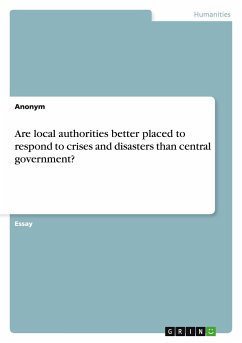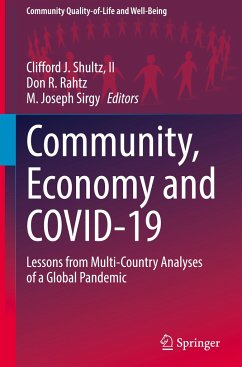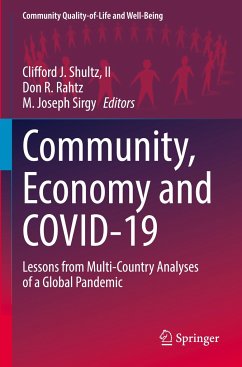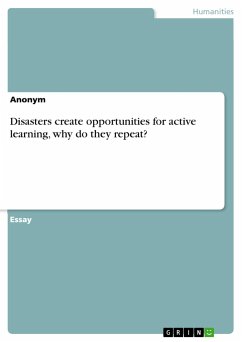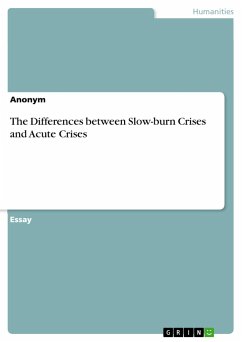
The Differences between Slow-burn Crises and Acute Crises
Versandkostenfrei!
Versandfertig in 1-2 Wochen
15,95 €
inkl. MwSt.

PAYBACK Punkte
0 °P sammeln!
Essay from the year 2013 in the subject Sociology - Methodology and Methods, , language: English, abstract: Crises have become more numerous, visible and calamitous and organisations have no choice but to accept them as an inescapable reality that must be factored into their planning and decision making. Crises pose challenges any organization can face, and many fail to respond. Wise organizations prepare for crises, knowing that it will befall them. Events leading to a crisis can be manifold. Some appear suddenly, others offer considerable warning, providing early-warning indicators are recog...
Essay from the year 2013 in the subject Sociology - Methodology and Methods, , language: English, abstract: Crises have become more numerous, visible and calamitous and organisations have no choice but to accept them as an inescapable reality that must be factored into their planning and decision making. Crises pose challenges any organization can face, and many fail to respond. Wise organizations prepare for crises, knowing that it will befall them. Events leading to a crisis can be manifold. Some appear suddenly, others offer considerable warning, providing early-warning indicators are recognized. Crisis management strategies should envisage preparing organizations for acute and slow-burn crises alike. However, given the amount of attention that high-impact, low-frequency events receive, many organizations' crisis management strategies focus is on response to an acute crisis rather than the identification and prevention of a slow-burn crisis. Acute, event based crises, with an initiating trigger event and a clearly identifiable physical boundary, are the most common type of crises. Slow-burn crises have a different nature. Their low intensity attributes contribute to the situation that this type of crisis remains often unrecognised until it is too late to implement effective control measures.



